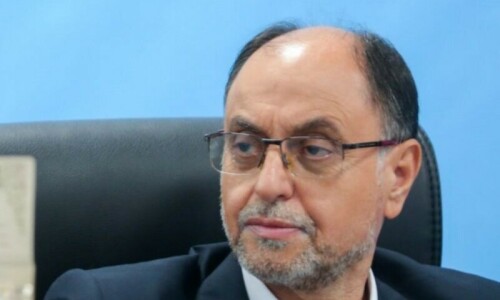NAIROBI: A UN-led fight against global warming is likely to be more flexible after 2012 in hopes of enlisting outsiders such as the United States and China, delegates at UN climate talks say.
Ideas floated at the Nov. 6-17 talks include technology and aid for poor nations in return for braking a rise in greenhouse gases, sectoral goals for industries such as steel or aluminium, or credits to slow deforestation in the Amazon or Congo basins.“We have to make it attractive for countries to take part,” Yvo de Boer, head of the UN Climate Change Secretariat, said
of ideas for widening the UN's Kyoto Protocol beyond 2012 which sets strict caps on emissions.
“I see people looking at a larger menu of options and I find that very constructive,” he told Reuters.
Kyoto binds 35 developing nations to cut emissions of greenhouse gases, mainly from burning fossil fuels, to five per cent below 1990 levels by 2008-12. Most Kyoto nations favour deeper cuts for themselves after 2012 but want more nations involved.
De Boer said some ideas to widen Kyoto might help mute objections from President George W. Bush, who pulled the United States out of Kyoto in 2001 saying that it wrongly set no targets for developing nations and would be too costly.
But US climate negotiator Harlan Watson said the United States had no plans to re-join Kyoto, now or beyond 2012. The United States is the world's top emitter of greenhouse gases, mainly from power plants, factories and cars, ahead of China. Kyoto is meant as a first step to avert what many scientists say will be wrenching disruptions to the climate such as heatwaves, floods, desertification and rising sea levels.
But he foresaw a more flexible approach, perhaps even a menu of options.
Among ideas are investments in clean energy technologies such as wind or solar power in developing nations, especially in Africa, to help them avoid fossil-fuel intensive industries.
Some poorer states could get goals to brake the rise in their emissions -- China's current five-year plan, for instance, already includes a goal to cut the amount of carbon dioxide per unit of economic output by 20 per cent.
Some developing nations want aid to reward them if they slow the rate of deforestation from Papua New Guinea to Bolivia -- perhaps even tradeable credits such as in a European market for emissions of carbon dioxide.
Zammit Cutajar, from Malta, said some nations may seek sectoral industrial benchmarks for the amount of carbon dioxide emitted, for instance per tonne of steel, aluminium or cement.—Reuters












































Dear visitor, the comments section is undergoing an overhaul and will return soon.